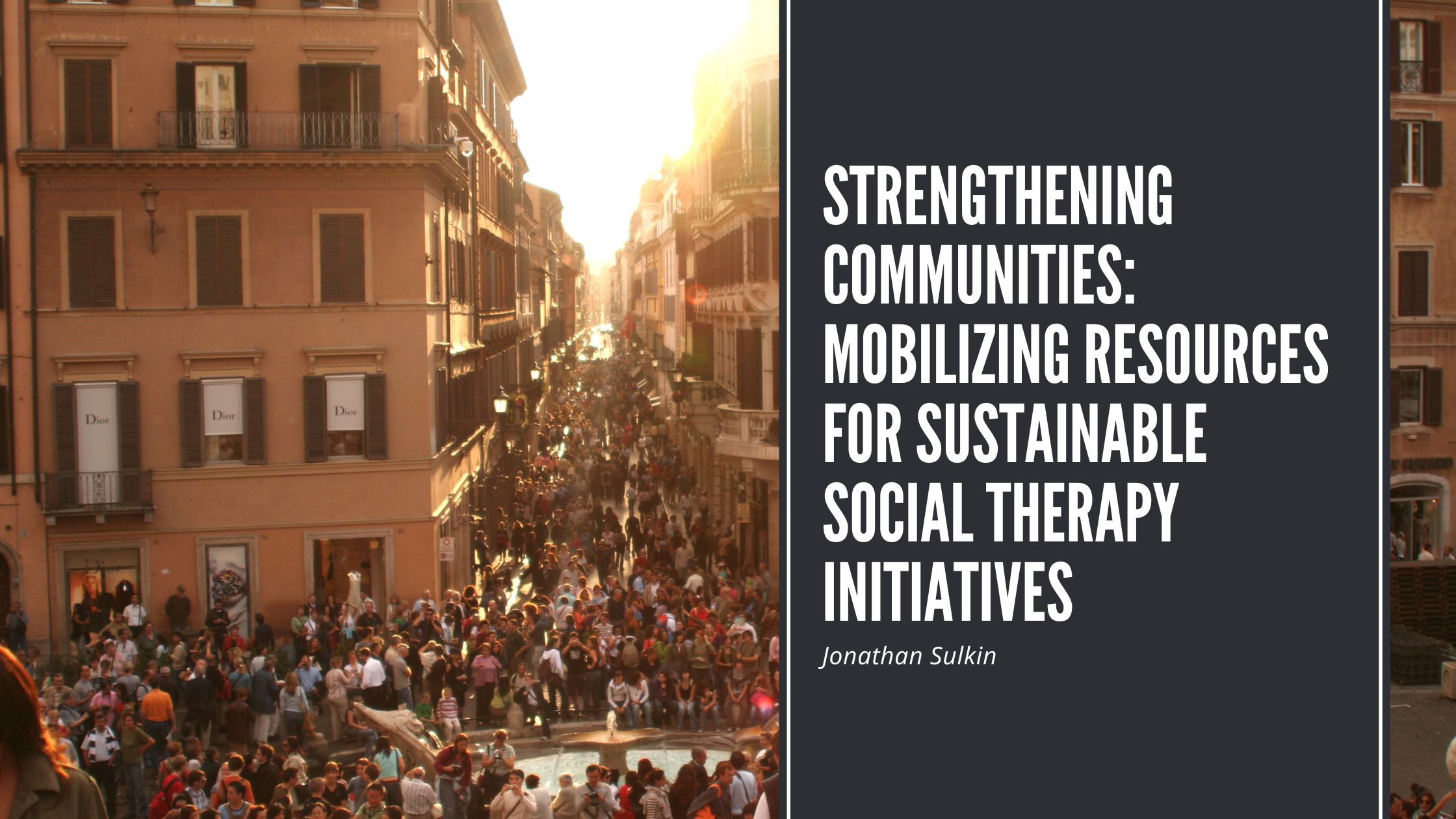In the realm of mental health and community well-being, social therapy initiatives serve as vital resources for fostering healing, resilience, and empowerment among individuals and groups. These initiatives rely on various resources to sustain their operations and make a meaningful impact in communities. In this blog post, we’ll explore the importance of mobilizing resources for sustainable social therapy initiatives and strategies for strengthening community support.
First and foremost, financial resources are essential for the sustainability of social therapy initiatives. Funding enables organizations to hire qualified staff, maintain physical spaces, and implement programs and services effectively. Securing grants, donations, and sponsorships from government agencies, foundations, businesses, and individual donors is crucial for ensuring the long-term viability of social therapy initiatives. Additionally, organizations can explore creative fundraising strategies such as crowdfunding campaigns, benefit events, and corporate partnerships to supplement their financial resources.
Moreover, human resources are equally important for the success of social therapy initiatives. Skilled and dedicated professionals, volunteers, and peer supporters are vital in delivering high-quality services, facilitating group sessions, and providing individual support to participants. Building a diverse and passionate team with expertise in psychology, counseling, social work, peer support, and community organizing enhances the effectiveness and impact of social therapy initiatives. Investing in staff training, professional development, and peer supervision ensures that team members are equipped with the knowledge, skills, and support they need to excel in their roles.
Furthermore, partnerships and collaborations are essential for maximizing the reach and impact of social therapy initiatives. By forging alliances with other mental health organizations, community groups, educational institutions, healthcare providers, and government agencies, social therapy initiatives can access additional resources, expertise, and networks of support. Collaborative efforts enable organizations to leverage complementary strengths, share best practices, and coordinate services to address the diverse needs of communities more effectively.
Additionally, community engagement and participation are critical for the sustainability of social therapy initiatives. By actively involving community members in designing, implementing, and evaluating programs and services, organizations can ensure that their efforts are responsive to local needs and priorities. Hosting community forums, focus groups, and advisory committees allows stakeholders to provide feedback, share insights, and contribute ideas for improving and expanding social therapy initiatives. Moreover, empowering community members to become advocates and ambassadors for mental health and social well-being strengthens social therapy initiatives’ grassroots support and visibility.
In conclusion, mobilizing resources for sustainable social therapy initiatives is essential for promoting mental health, resilience, and community empowerment. By securing financial resources, cultivating human capital, fostering partnerships, and engaging community members, organizations can strengthen their capacity to deliver high-quality services and make a lasting impact on the lives of individuals and communities. Together, let us continue to invest in and support social therapy initiatives as vital assets for building healthier, more resilient, and more connected communities.

